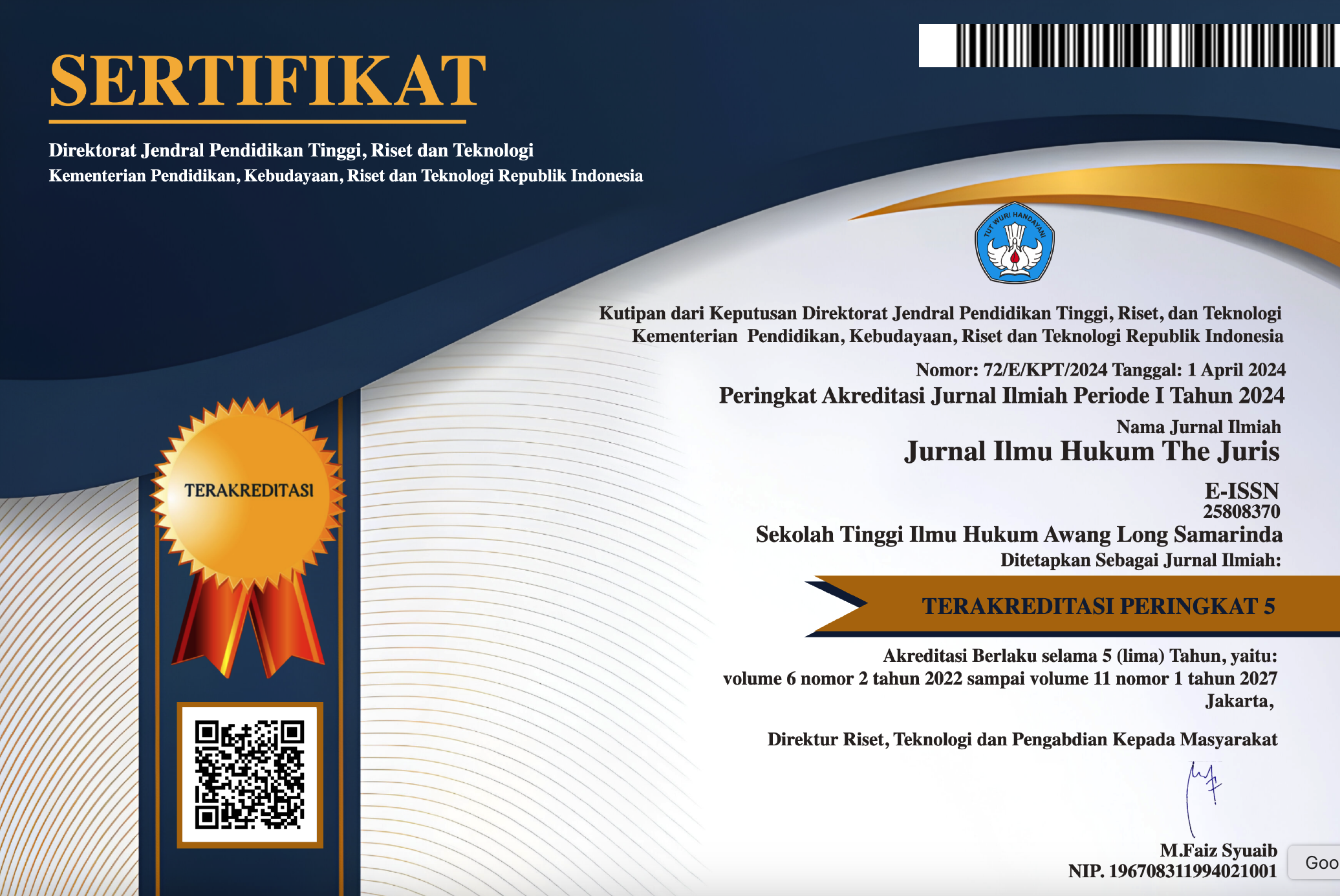PENYELESAIAN HUKUM MELALUI RESTORATIF JUSTICE TERHADAP TINDAK PIDANA DARI ASPEK SOSIOLOGI HUKUM
Abstract
Restorative justice can be interpreted as the restoration of justice for victims and perpetrators of crimes. This definition developed after being included in the criminal justice system, so that its meaning becomes a systematic settlement process for criminal acts that emphasizes recovery for losses to victims and or society as a result of the perpetrator's actions. In this settlement process involving victims and perpetrators directly and actively. The formulation of the problem in this study is Legal Settlement Through Restorative Justice Against Criminal Acts from the Aspect of Legal Sociology. The method used is normative legal research. Based on the results of the study it is known that legal settlement through restorative justice for criminal acts from the sociological aspect of law that the principle of restorative justice is an alternative settlement of criminal cases, which in the mechanism (criminal justice procedures) the focus of the crime is changed to a process of dialogue and mediation. Dialogue and mediation in restorative justice involve several parties including perpetrators, victims, families of perpetrators or victims, and other related parties. In general, the purpose of the legal settlement is to create an agreement on the settlement of criminal cases. In addition, another goal of restorative justice is to obtain a fair and balanced legal decision for both victims and perpetrators. The main principle in restorative justice is law enforcement which always prioritizes restoration to its original state, and restores patterns of good relations in society. Sociology of law is a branch of science that analytically and empirically analyzes or studies the interrelationships between law and other social phenomena. By studying legal sociology, there are at least three uses or benefits that can be obtained, namely providing the ability to understand law in a social context; provide the ability to analyze the effectiveness of law in society and provide the ability to conduct an evaluation (assessment) of the law in society.
Downloads
Copyright (c) 2022 Mohd. Yusuf D.M., Fernando Manurung, Rubenjos Soros Sipayung, Muhammad Adri

This work is licensed under a Creative Commons Attribution-ShareAlike 4.0 International License.







